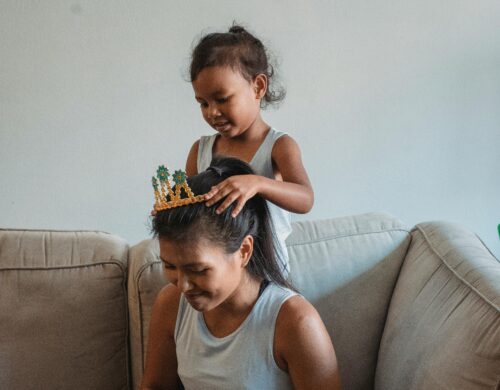Embarking on the journey of co-parenting post-divorce can often feel like navigating uncharted waters. With emotions running high and new dynamics emerging in personal relationships, this path presents unique challenges that require both resilience and cooperation.
In this article, we explore the intricate landscape of co-parenting after a divorce. From managing emotional turmoil to aligning parenting styles and handling logistical hurdles, this guide offers a beacon of understanding and practical strategies to overcome co parenting challenges post divorce. Our goal is to provide you with insights and tools to not only cope with these challenges but to thrive as co-parents, ensuring the best possible outcomes for your children’s lives and yourselves.

The Emotional Landscape Of Co-Parenting Post-Divorce
In the aftermath of a divorce, the emotional well-being of both parents and children takes center stage. Navigating this new emotional landscape requires understanding, patience, and a concerted effort to address the complex feelings that emerge.
As co-parents, it’s essential to recognize and manage your own emotional responses while simultaneously supporting your children as they adjust to this significant life change.
DEALING WITH PERSONAL EMOTIONS
Post-divorce, it’s common for emotions to be in a state of flux. Co-parents might experience a range of feelings, from relief to resentment, guilt, or anxiety. It’s crucial to acknowledge these emotions and seek appropriate outlets for them, such as counseling or support groups.
This self-awareness not only aids in personal healing but also prevents negative feelings and emotions from spilling over into the co-parenting relationship.
SUPPORTING CHILDREN’S EMOTIONAL NEEDS
Children often bear the emotional wounds of a divorce. They might feel a sense of loss, confusion, or insecurity. Co-parents must prioritize their children’s emotional and mental health and well-being by:
- Maintaining open lines of communication
- Offering reassurance
- Providing consistent love and support
It’s also important to monitor for signs of distress in children, such as changes in behavior or mood, and to seek professional help if needed.
NAVIGATING NEW FAMILY DYNAMICS
The shift in family dynamics post-divorce can be challenging for everyone involved in a co-parenting situation. Co-parents and children of separated parents alike must adjust to:
- New living arrangements
- Step-families
- Simply the absence of one parent in the daily routine
Navigating this new normal requires flexibility, patience, and a willingness to adapt. It’s important to foster a sense of normalcy and stability for children, allowing them to feel secure in both homes.
Communication Challenges
Effective communication is the lifeline of co-parenting success. Post-divorce, how parents and their former spouse communicate can either ease the transition for their children or exacerbate the challenges.
Tackling communication issues head-on, with a commitment to honesty, clarity, and respect, is crucial for maintaining a healthy co-parenting relationship and ensuring the best outcomes for the children involved.
ESTABLISHING EFFECTIVE COMMUNICATION CHANNELS
Effective communication is the cornerstone of successful co-parenting. It involves not only talking but also listening. Co-parents should establish clear and consistent channels of communication, whether through:
- Phone
- Co-parenting apps
It’s crucial to keep discussions focused on the children’s needs and to avoid rehashing personal issues.

HANDLING MISUNDERSTANDINGS AND DISAGREEMENTS
Misunderstandings and co parenting disagreements are inevitable. When they arise, it’s important to approach them with a problem-solving mindset, focusing on the issue at hand rather than personal grievances.
Practicing empathy, being willing to compromise, and keeping the children’s best interests at heart can help resolve conflicts more effectively.
Consistency In Parenting Styles
Consistency is key in providing a stable and secure environment for children post-divorce. This section explores how co-parents can work towards harmonizing their parenting styles to create a cohesive and predictable environment for their children.
Balancing different parenting philosophies and methods is a delicate task but is essential for the kids well-being and balanced development.
ALIGNING RULES AND EXPECTATIONS
While co-parents might have different parenting styles, establishing a set of basic rules and expectations that apply in both households is essential for children’s sense of security. This parenting plan might include:
- Consistent bedtimes
- Homework policies
- Screen time limits
Regular discussions and adjustments as children grow and evolve are key to maintaining this consistency.
MANAGING DIFFERENCES IN PARENTING APPROACHES
Respecting each other’s unique parenting approach while ensuring a unified front on major issues is crucial. It’s beneficial to acknowledge the strengths in each other’s parenting styles and learn from them. Open and respectful discussions about parenting decisions can help bridge differences.
Financial Responsibilities And Arrangements
Financial responsibilities and arrangements often become a focal point in co-parenting dynamics. Managing these responsibilities with transparency and fairness is vital for the children’s well-being and the health of the co-parenting relationship.
This section delves into the strategies and considerations for effectively handling the financial aspects of co-parenting, ensuring both parties are clear about their obligations and expectations.
UNDERSTANDING AND FULFILLING FINANCIAL OBLIGATIONS
Post-divorce financial arrangements often include child support, which should be clearly outlined and understood by both parties. It’s crucial for co-parents to be transparent about their financial situations and to fulfill their financial obligations reliably. This ensures that the children’s needs are consistently met.
DEALING WITH FINANCIAL DISPUTES
Financial disputes can be a significant source of stress in co-parenting. To mitigate this, co-parents should aim to:
- Communicate openly about expenses
- Budget for unforeseen costs, and where necessary
- Seek mediation or legal advice
Keeping records of expenses and agreements can also help prevent misunderstandings and conflicts.
Balancing Time And Schedules
Balancing time and schedules in co-parenting demands a blend of structure and flexibility, cooperation, and respect. It’s about finding a rhythm that works for the children and the parents, allowing the family to thrive in a post-divorce world. Let’s take a look at the different aspects of balancing time and schedules for co-parents:
1. CREATING A FAIR AND PRACTICAL CUSTODY SCHEDULE
One of the most tangible challenges in co-parenting is developing a custody schedule that works for everyone involved, especially the children. This schedule should consider:
- The children’s school, extracurricular activities, and social life
- The parents’ work schedules and other commitments
It’s important to create a schedule that minimizes disruption to the children’s schedules and routines while allowing them meaningful time with each parent. Flexibility is key, as rigid schedules may not always accommodate unexpected life events or changes in circumstances.

2. ADAPTING TO CHANGES IN ROUTINES AND PLANS
Life is unpredictable, and this is especially true for families navigating post-divorce life. Co-parents should be prepared to adapt to changes in routines and plans. This might include adjusting custody schedules for special school events, accommodating changes in work schedules, or responding to the evolving needs of the children as they grow.
Effective communication and a willingness to compromise are crucial in these situations. It’s also important to keep the children informed about changes in a way that is age-appropriate and reassuring. This will help them feel secure and involved.
3. MAINTAINING CONSISTENCY ACROSS HOUSEHOLDS
While the physical setting might change between households, maintaining a consistent routine in terms of daily schedules, bedtimes, meal times, and homework routines can provide a sense of stability and security for the children.
Co-parents should collaborate to ensure that basic routines are as consistent as possible in both homes. This consistency helps children to feel more in control and less anxious about the transitions between homes.
4. RESPECTING EACH PARENT’S TIME WITH THE CHILDREN
Respecting each other’s time with the children is fundamental in co-parenting. This means:
- Honoring the agreed-upon schedule
- Being punctual during pick-ups and drop-offs
- Avoiding encroachment on the time of the other parent with unnecessary calls or demands
It also involves fostering a positive attitude toward the child’s relationship with both parents, which is crucial for the children’s emotional well-being, and for your own emotions as well.
Building A Support System
Building a support system in co-parenting is about creating a network of emotional, practical, and professional resources.
This network not only supports co-parents individually but also contributes to a healthier and more stable environment for the children.
LEVERAGING EXTERNAL SUPPORT
A robust support system is vital for co-parents navigating post-divorce challenges. This support can come from various sources, including family, friends, professional counselors, and support groups.
Family and friends can offer practical help, like childcare or transportation, and emotional support. Professional counselors or therapists specializing in family dynamics can provide guidance and strategies for effective co-parenting.
Additionally, joining support groups can connect co-parents with others in similar situations, offering a sense of community and shared experiences.
FOSTERING POSITIVE RELATIONSHIPS WITH EXTENDED FAMILY
Extended family members play a significant role in providing stability and continuity for children post-divorce. Co-parents need to encourage and maintain positive relationships between their children and both sides of the extended family. This includes grandparents, aunts, uncles, and cousins.
Keeping these family connections strong ensures that children continue to benefit from a wider family network, which can be a source of comfort and security for them.
CREATING A NETWORK OF TRUSTED CAREGIVERS
Having a network of trusted caregivers can be a lifeline for co-parents, especially when managing busy schedules or unexpected commitments. This network might include babysitters, neighbors, or other parents from the children’s school. Building this network requires time and trust, but having reliable people who can step in when needed is invaluable for co-parents.
The Role Of Professional Support Services
In some cases, co-parents might benefit from professional support services such as family mediation, legal advice (also known as family law), or financial planning. These services can help navigate the more complex aspects of co-parenting, such as:
- Custody arrangements
- Financial disputes
- Future planning for the children’s education and well-being
Accessing these services early can prevent misunderstandings and conflicts later on, and each parent may have different ways to approach them
To Wrap Up
Co-parenting post-divorce is undeniably a journey filled with ups and downs. It might seem tough, but co-parenting is actually a chance to grow, strengthen your bond with your kids, and create a happier family life if you handle it with care, good talk, and dedication. By using the tips we’ve talked about in this article, like talking things out well, managing money smartly, and supporting your child’s well-being and each other emotionally, both you and your co-parent can make a solid and loving home for your kids.
Keep in mind, that the key to good co-parenting is treating each other with respect, trying to understand each other, and both of you being totally committed to your kids’ happiness. As you go ahead, let these ideas be your guide; you can even learn the benefits of social media on family relationships to stay connected. They can help you turn the tricky parts of co-parenting into chances to make a peaceful and supportive family life after divorce.
Frequently Asked Questions (FAQ)
What are the top parenting issues and problems after divorce?
What is the hardest part of co-parenting?
What are some of the challenges of co-parenting?
What makes for successful co-parenting after a divorce?
What makes for successful co-parenting after a divorce?
What do kids with divorced parents struggle with?
Is having divorced parents trauma?
Why is co-parenting so hard?
Is co-parenting better than staying together?
Do kids with divorced parents struggle with relationships?
At what age is a child’s self esteemmost affected by divorce?
How divorce affects children psychologically?
How do you deal with a toxic co-parenting ex?
Is co-parenting damaging?
How do you co-parent with an ex spouse that you still love?
Are children happier with divorced parents?
How divorce changes a woman?
Are kids resilient after divorce?
